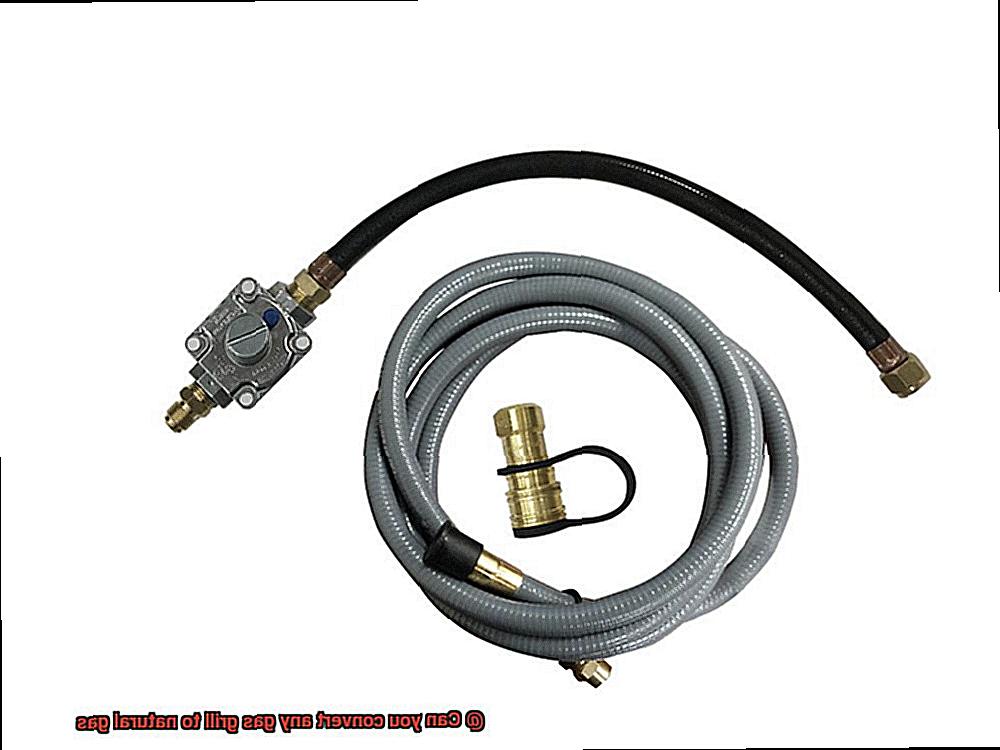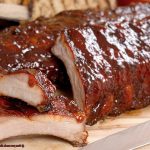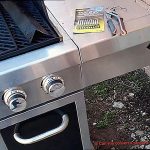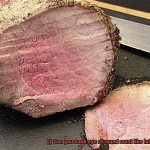Are you tired of the hassle of constantly refilling your propane tank every time you want to grill up some juicy burgers or veggies? Or maybe you’re looking for a more eco-friendly option to fuel your grilling sessions. Either way, converting your gas grill to run on natural gas might be just what you need. But before you get too excited, it’s important to know that not all gas grills are created equal, and not all can be converted.
Natural gas is a cleaner-burning alternative to propane, making it an attractive choice for environmentally conscious grill enthusiasts. However, the conversion process can be tricky and requires specific equipment. In this blog post, we’ll explore everything you need to know about converting your gas grill to natural gas.
We’ll dive into the pros and cons of natural gas grilling, discuss which types of gas grills can be converted, and provide step-by-step instructions on how to make the switch. By the end of this post, you’ll have a better understanding of whether natural gas grilling is right for you and how to go about making the conversion.
So, let’s fire up those grills (pun intended) and get started.
Contents
What is Natural Gas?
Natural gas is a valuable fossil fuel that is formed from the remains of plants and animals over millions of years. It is mainly composed of methane gas and can be found underground. This versatile fuel has become increasingly popular due to its abundance, versatility, and relatively low emissions compared to other fossil fuels.
One of the many uses of natural gas is in grilling. Many people are choosing natural gas over propane as it is more convenient and cost-effective. However, not all gas grills can be converted to run on natural gas. Whether or not a grill can be converted depends on the make and model of the grill. Some manufacturers offer conversion kits for their grills, while others do not.
If a manufacturer does offer a conversion kit for their grill, it is important to consider the cost and effort involved in the conversion process. The process can be quite involved and may require professional installation. Additionally, some warranties may become void if the grill is converted.
Safety should always be a top priority when handling natural gas. It is lighter than air and can quickly dissipate into the atmosphere if there is a leak. However, precautions must still be taken such as ensuring proper ventilation in enclosed spaces where natural gas is being used.
Natural gas is often referred to as a clean-burning fuel because it produces fewer emissions than other fossil fuels such as coal and oil. When burned, natural gas releases mainly carbon dioxide and water vapor which are both harmless to the environment. It also produces lower levels of pollutants such as sulfur dioxide, nitrogen oxides, and particulate matter that contribute to air pollution and negative health effects.
In addition to being used for grilling purposes, natural gas has a wide range of applications including heating homes and buildings, generating electricity, and fueling vehicles. Its versatility makes it an attractive alternative to traditional fossil fuels.
Benefits of Natural Gas Grills
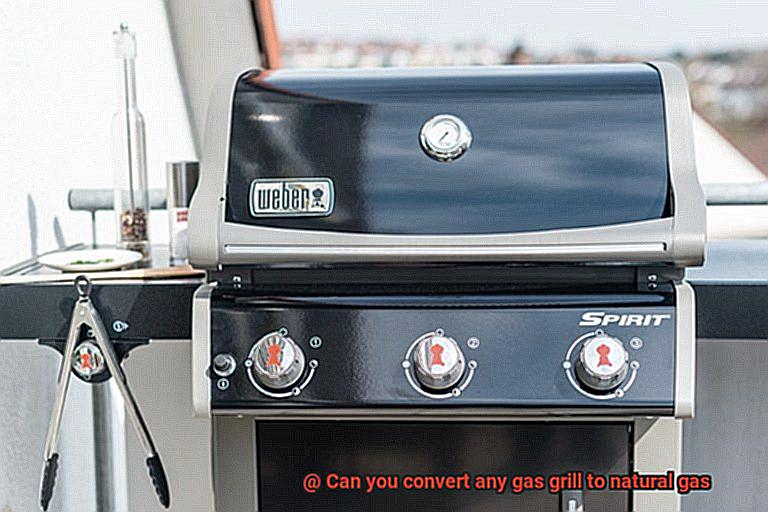
As an expert in the benefits of natural gas grills, I can assure you that there are numerous advantages to using this type of grill.
First and foremost, natural gas is cost-effective. It’s significantly cheaper than propane, which means you’ll save money in the long run. And the best part? You won’t have to worry about running out of fuel mid-cookout and needing to refill your tank. With natural gas, you’ll have a constant supply of fuel, so you can grill whenever you want without any hassle.
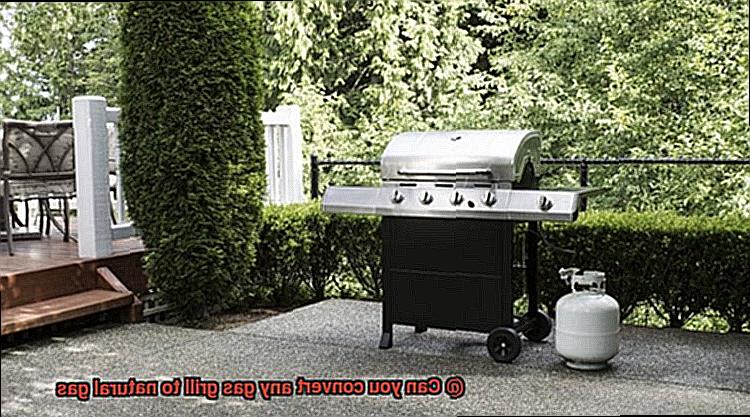
But the convenience of natural gas doesn’t stop at cost savings. Because natural gas is connected to your home’s gas line, there’s no need to store and replace propane tanks. This means less hassle and more time spent grilling. Plus, natural gas burns cleaner than propane, making it a more environmentally friendly option. It produces fewer emissions and pollutants, which is better for both your health and the environment.
When it comes to cooking on a natural gas grill, temperature control is key. Natural gas grills offer precise temperature control, allowing you to cook your food exactly how you want it. You can easily adjust the heat to get the perfect sear on your steak or keep your vegetables at just the right temperature. This precision will make all the difference in the quality of your food.
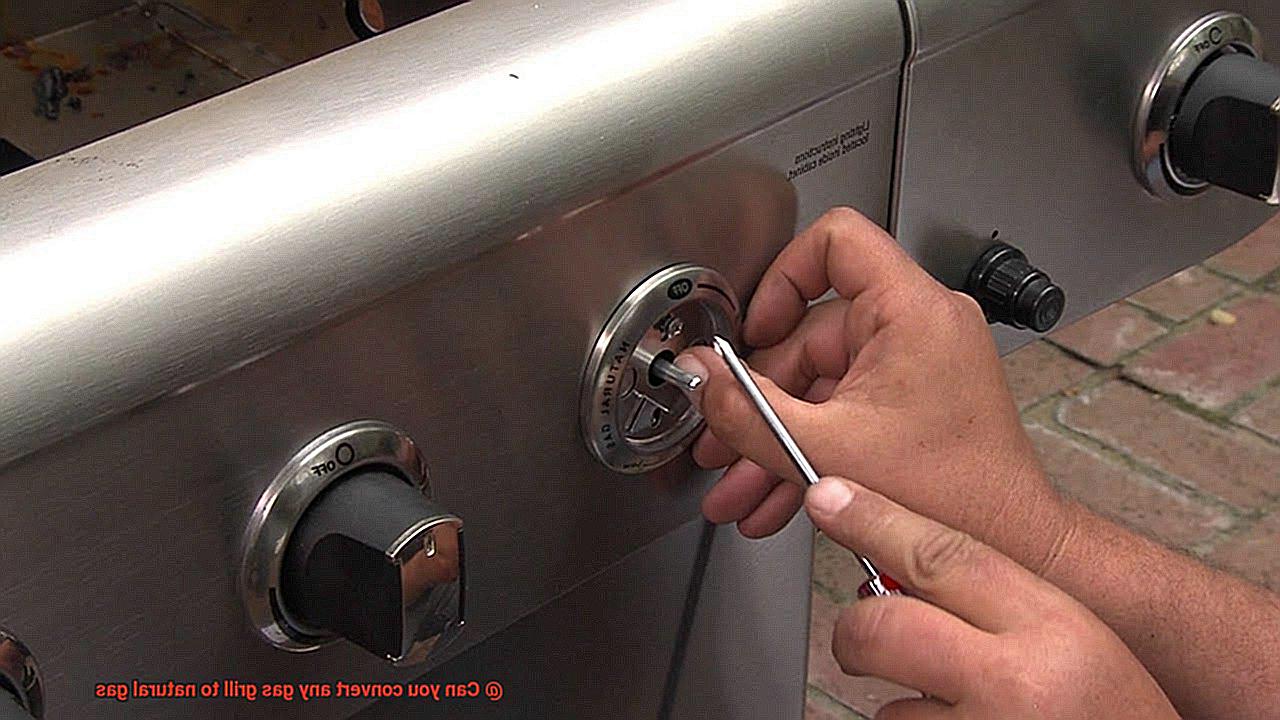
And if versatility is what you’re after, natural gas grills come in a variety of sizes and styles. Whether you’re cooking for a small family or hosting a big backyard barbecue, there’s a natural gas grill that will work for you.
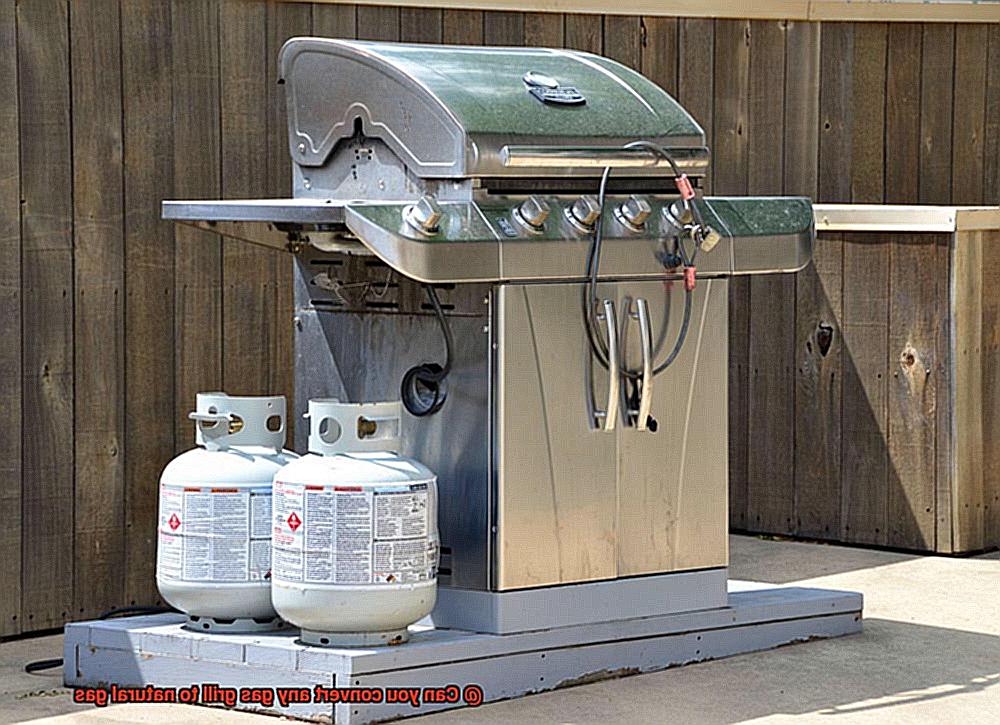
Can All Gas Grills be Converted to Natural Gas?
The answer is not a simple one. There are a few factors to consider before making the switch.
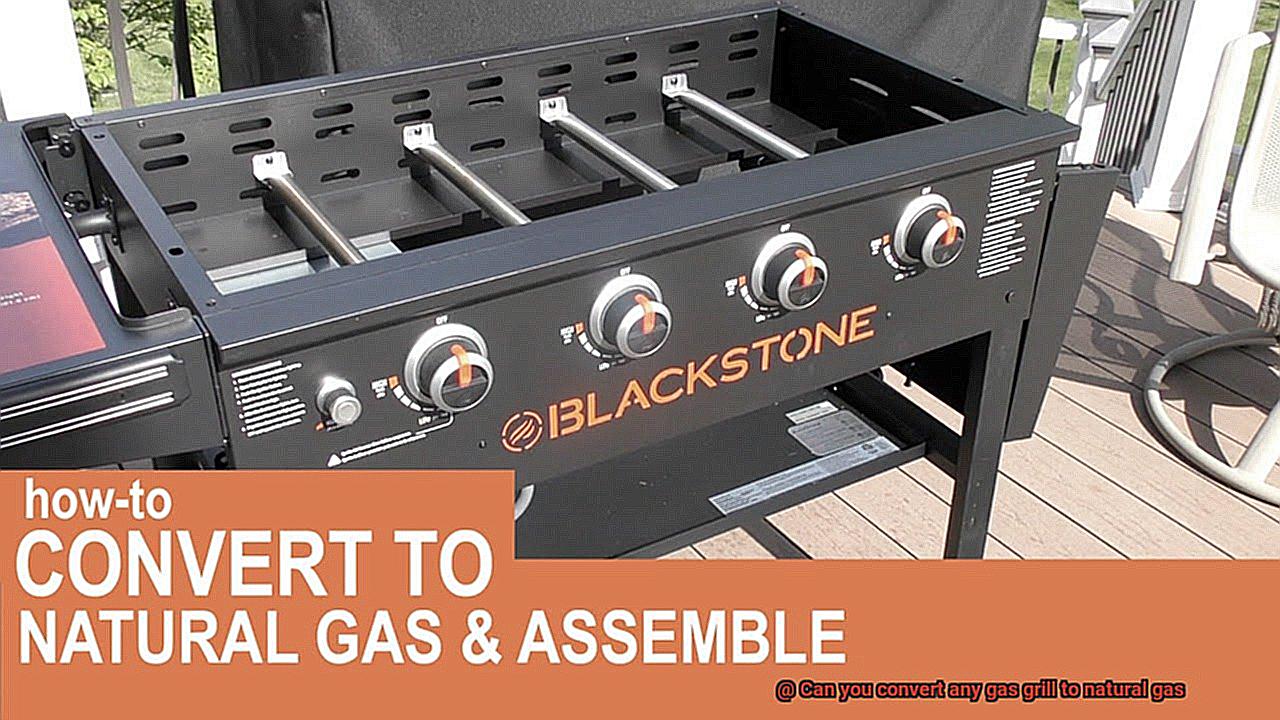
Firstly, it’s essential to note that not all gas grills are designed for conversion. Some manufacturers explicitly state that their grills cannot be converted, while others offer conversion kits for specific models. Therefore, it’s crucial to check with your grill’s manufacturer before attempting any conversions.
The size and type of the grill also play a role in determining its convertibility. Smaller grills may not have enough room for the necessary conversion components, while larger grills may require more complex conversion kits. So, it’s important to consider the size and type of your grill before deciding on a conversion.
Moreover, age is another factor to consider. Older models may not have conversion kits available or may not be designed for conversion at all. Therefore, if you have an older grill, it may not be possible to convert it to natural gas.
Even if your grill is convertible, it’s crucial to have a professional handle the installation. Improper installation or use of incorrect parts can result in dangerous leaks or other hazards. So, it’s imperative to consult with a professional before attempting any conversions.
In summary, while some gas grills can be converted to natural gas with the appropriate kit and professional installation, it’s essential to do your research before making any conversions. To help you out, we’ve compiled a checklist:
- Check with the manufacturer’s guidelines.
- Consider the size and type of your grill.
- Check if conversion kits are available for your grill.
- Consult with a professional before attempting any conversions.
Manufacturer Conversion Kits
If you’re tired of constantly refilling or replacing your propane tank whenever you want to grill up some delicious food, converting your gas grill from propane to natural gas might just be the solution you’re looking for. But before you go ahead and attempt this conversion, it’s essential to understand the benefits of using a manufacturer conversion kit.
Manufacturer conversion kits are specifically designed to make the conversion process as easy and safe as possible. These kits come equipped with all the necessary components, including a new regulator, burner orifices, and a hose to connect your grill to the natural gas line. This means that you don’t have to worry about purchasing individual parts or trying to figure out how to install them yourself.
One of the significant advantages of using a manufacturer conversion kit is that it ensures that your grill is converted correctly. The instructions are straightforward and easy to follow, eliminating any guesswork or potential errors that could occur if you attempted the conversion yourself. This not only saves you time but also prevents any hazardous leaks or hazards that could be dangerous.
Moreover, converting your grill to natural gas can save you money in the long run. Propane tanks need regular refilling or replacement, which can be quite expensive over time. Natural gas, however, is often less expensive and readily available. By using a manufacturer conversion kit to convert your grill, you can save money on fuel costs while enjoying the convenience of never having to refill or replace your propane tank again.
It’s important to note that not all gas grills can be converted using these kits. Before purchasing a manufacturer conversion kit, it’s crucial to check with your grill’s manufacturer to ensure compatibility. This will ensure that you get the right kit for your specific grill and avoid any potential issues during installation.
To summarize, here are some key points to keep in mind when considering a manufacturer conversion kit:
- Manufacturer conversion kits come equipped with all the necessary components and instructions for a safe and successful conversion.
- Using a manufacturer conversion kit ensures that your grill is converted correctly, eliminating any potential errors or hazards.
- Converting your grill to natural gas can save you money in the long run by avoiding regular propane tank refills or replacements.
- It’s crucial to check with your grill’s manufacturer before purchasing a conversion kit to ensure compatibility.
Cost and Effort of Conversion
Converting your gas grill to natural gas is a safe, easy, and cost-effective option – but it does require some effort and investment. Let’s dive into the details of the cost and effort involved in this process.
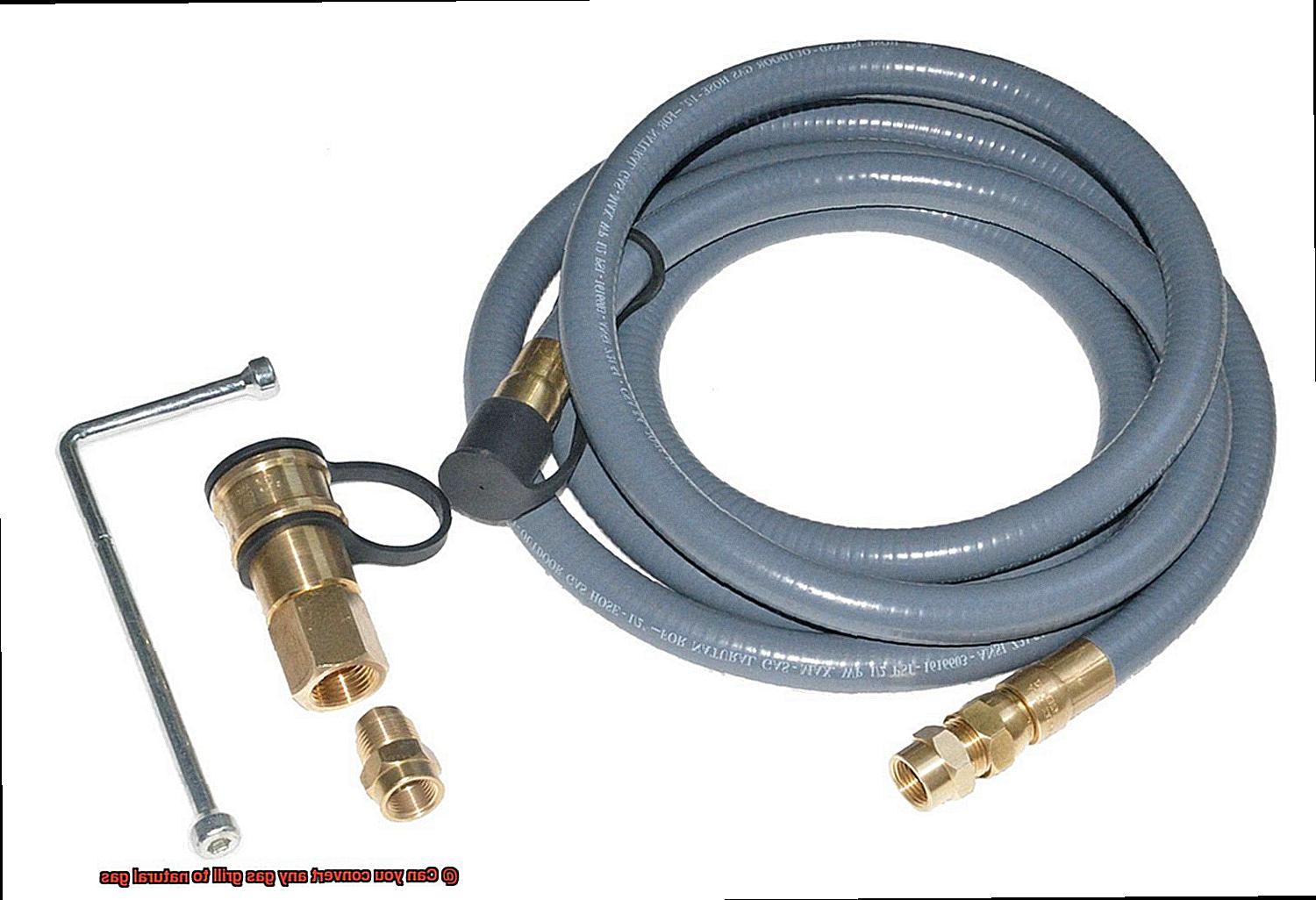
First and foremost, the cost of converting a gas grill to natural gas will depend on several factors. The size and type of grill, availability of a natural gas line, and availability of conversion kits all play a role in determining the overall cost. Conversion kits can range from $50 to $150 depending on the brand and model of your grill, while installation costs will vary based on the complexity of the job and hourly rates of technicians.
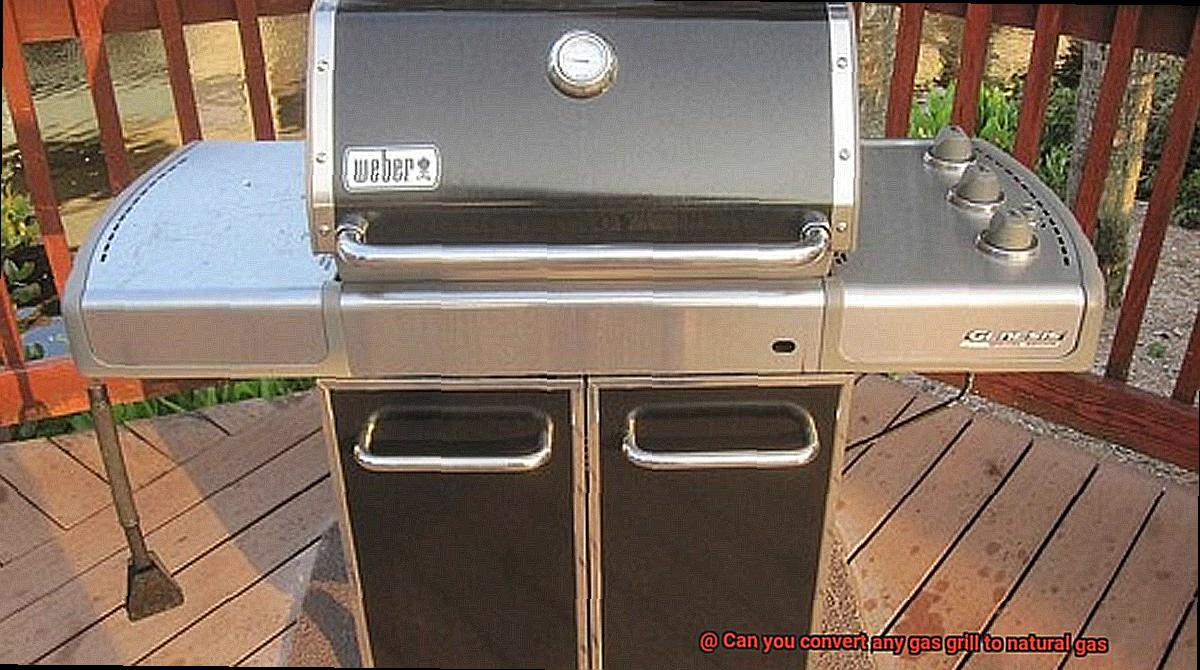
The effort required for conversion can also vary depending on your skill level. If you’re not confident in your abilities, it’s best to hire a professional technician for installation. The process involves cutting off the existing propane hose and regulator, installing a new gas hose and regulator, and connecting it to the natural gas line. While this process may take several hours, following the manufacturer’s instructions carefully is crucial for a successful conversion.
Before purchasing a gas grill with the intention of converting it to natural gas, it’s important to note that not all models are convertible. Some manufacturers offer models specifically designed for natural gas, while others do not provide conversion kits at all. Therefore, research on the availability of conversion kits for your specific model is crucial.
Warranties and Modifications
It’s a wise choice that can save you money and make grilling even more convenient. However, before you embark on this adventure, it’s essential to consider the potential impact on warranties.
Manufacturers offer warranties that cover defects in materials and workmanship, but these warranties may become void if the grill is modified in any way. This means that if something goes wrong with your grill after the conversion, you may not be able to claim any warranty with the manufacturer.
To avoid this, it’s crucial to read the manufacturer’s warranty information before attempting to convert your gas grill. Some companies may allow for conversions as long as they’re done by a certified professional, while others may have strict rules against any modifications.
If you decide to proceed with the conversion, some manufacturers offer conversion kits explicitly designed for their grills. Using these kits can help ensure that your warranty remains intact. However, it’s crucial to follow all instructions carefully and make sure that the conversion is done correctly.
To play it safe, contact the manufacturer directly and ask for their guidance if you’re unsure about whether or not a conversion will void your warranty. They may provide additional information or recommend a certified professional who can assist with the conversion process.
In summary, converting your gas grill from propane to natural gas can be an excellent decision. But before making any modifications, weigh the potential impact on warranties carefully. By doing your research and following instructions diligently, you can enjoy all the benefits of natural gas grilling without sacrificing your warranty coverage.
Potential Dangers of Improper Conversion
If you’re considering converting your gas grill from propane to natural gas, it’s important to understand the potential dangers of improper conversion. Natural gas and propane have different properties, and using the wrong fuel source can result in serious safety hazards.
Firstly, gas leaks are a major concern. If your grill is not properly converted, gas can leak from hoses or fittings, leading to a buildup of flammable gas that can ignite with even a small spark. The consequences of this can be catastrophic, as the resulting fire can cause injury or property damage. Not only is this a fire hazard, but natural gas contains chemicals like carbon monoxide that can be harmful if inhaled.
Another danger of improper conversion is damage to the grill itself. Natural gas burns hotter than propane, so using natural gas on a grill designed for propane can cause damage to the burners and other components. This can lead to costly repairs or even require replacing the entire grill. It’s better to avoid these expenses by ensuring your grill is properly converted by a professional.
Lastly, attempting to convert a grill without proper knowledge or training can be dangerous in and of itself. Working with gas lines and fittings requires specialized knowledge and equipment, and mistakes made during the conversion process can result in injury or property damage. Don’t attempt this task alone – leave it to the professionals.
VAI4wxXILdQ” >
Conclusion
To sum it up, switching your gas grill to natural gas can revolutionize your grilling experience with its unparalleled convenience, cost-effectiveness, and eco-friendliness. But hold on – not all gas grills are created equal, and the conversion process requires specific equipment and precautions to ensure safety.
Before you go all in on modifying your grill, do your homework. Find out whether your grill is convertible and seek professional advice if necessary. Some manufacturers offer conversion kits for certain models that make the transition safe and easy.
While the long-term savings can be significant, keep in mind that converting your grill comes with an initial cost as well as potential warranty implications. A botched conversion could result in dangerous gas leaks or damage to your beloved grill.
Overall, if you’re a grilling enthusiast looking for a worthwhile investment, converting to natural gas could be just what you need.

